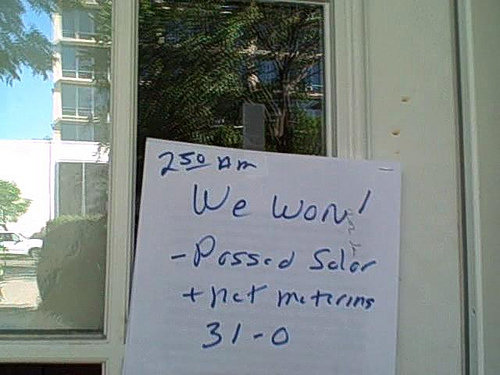Rep. Patrick Rose this morning had an opinion piece printed regarding transparency reforms at the Pedernales Electric Cooperative (PEC) , echoing similar criticism from the Austin American Statesman last week. I’m not saying I agree with every word Rep. Rose wrote here in this morning’s San Marcos Local News, but this shows that this will likely be an issue in the upcoming Legislative Session. As a bit of history, Rep. Rose (D-Dripping Springs) and Senator Troy Fraser (R-Horseshoe Bay), both of whom are members of the co-op, tried to pass a bill to increase transparency at PEC last session, but that ultimately failed when, as with so many other issues, it got killed by Voter ID.
Commentary
By PATRICK ROSE
District 45 State Representative
Our three-county district is served entirely by electric co-ops and municipally owned systems. I believe that public power has served our area well and kept costs lower than other energy providers across the state. As we continue our efforts to protect and grow jobs in our region, energy affordability is key. This is one of the many reasons why I am committed to a strong and transparent Pedernales Electric Cooperative (PEC).
On Monday, Senator Troy Fraser (R-Marble Falls) and I spoke at the August meeting of the PEC board of directors. I appreciate every opportunity to meet with the board and co-op members about our reform efforts.
My remarks were focused on my strong disapproval of the board’s latest mistake that cost co-op members $1 million, firing its general manager days before the election of two new board members. In June, PEC seated its first ever 100 percent democratically elected board. This decision could have and should have waited until the new board members, duly elected by the members, were sworn in.
The two outgoing directors were part of the legacy board that allowed for and participated in the mismanagement and corruption at PEC that was brought to light over the last few years. They should not have been part of any decision that impacts the future of PEC. At the meeting, I repeatedly asked Larry Landaker, PEC’s board president, to explain why he and two other board members joined forces with the last two legacy members. He could not answer the question, and furthermore, he admitted that the board did not have cause for the firing, thus costing co-op members $1 million.
These actions are unacceptable and show the irresponsibility and lack of transparency that justify legislation. What co-op members can count on, regardless of the makeup of the PEC board or who is general manager, is that Sen. Fraser and I are committed to transparency and openness at our cooperative. The legislature will reconvene in January and we will proceed with our effort to statutorily protect members’ rights. (more…)

 Last night at 11:58 pm (wink, wink),
Last night at 11:58 pm (wink, wink), 

